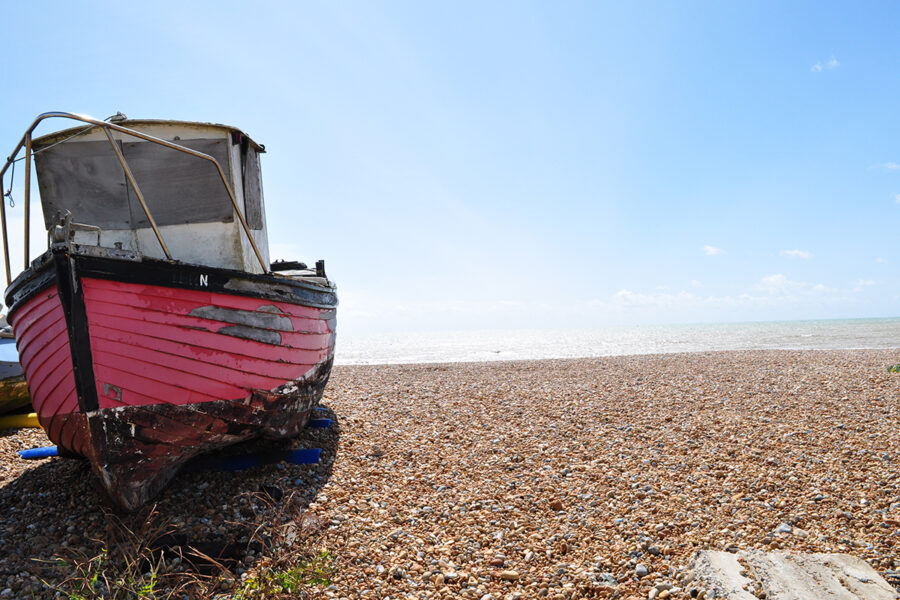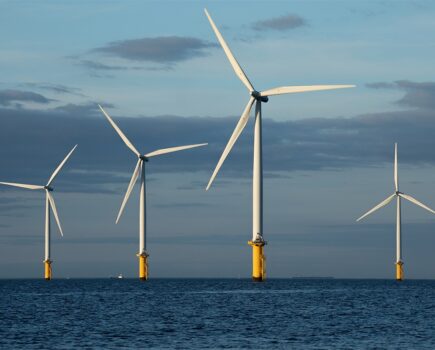An Essex catamaran designer and former fisherman has written a condensed history of the UK fishing industry. The article explains the structure of the industry, and sets out management policies over the past 40 years and the adverse effect they have had on UK stocks and industry, reports Tim Oliver.
Andrew Craig, the author of the article, says its purpose is to correct the often mistaken public perceptions of the industry; that its problems have been caused by overfishing. It spells out a catalogue of policies that it says have led to the current predicament of the industry.
The article – ‘How government and fisheries management policy caused overfishing in UK waters’ – is on a new Facebook page called The British Fishing Industry.
Starting with the loss of 60% of waters and 50% of quota entitlement on joining the then-EEC in 1974, it lists and explains the main policies and events that have led to the industry’s current situation. They include the diversion of effort into demersal fisheries following the closure of the North Sea herring fishery and loss of all herring markets in 1975; the introduction of quotas for whitefish species; decommissioning; FQAs; flag ships; buyers and sellers legislation; through to the current landings obligation.

Andrew Craig.
Andrew Craig says history has proved that fisheries managers and scientists do not have the knowledgebase to manage the industry, and could not be expected to, ‘with the very limited training they receive on this highly-complex and unique subject, which very few people outside of the industry could be expected to understand’.
He points out that commercial fishing is more a vocation than a job, and requires fishermen to put in many thousands of hours at sea to be successful.
“Management need to start using this massive knowledgebase more, and be prepared to take and accept sensible advice on conservation issues from the industry, not continue using academic and scientific advice based on theory and assumptions, as is normally the case,” he says.
“If industry advises an intended new policy won’t work, it must go back to the drawing board and not be forced into law regardless, as we so often witness. Then, and only then, will we achieve true conservation for our fish stocks and industry.
“I would suggest, when an entire industry without exception disagrees with management policies, the model being used cannot be fit for purpose.”
Andrew Craig told Fishing News that he had sent the article to all MPs in coastal constituencies, most NGOs, schools, colleges and universities.
“Since we’ve put it out, the attitude of local fishery officers has completely changed,” he said. “A lot of them haven’t been in the job very long, and they’re not aware of what’s been going on. They don’t realise it’s all down to management; they just think fishermen are a bunch of greedy b******s.”
He said the science that underpins management is inaccurate, and that ‘all the dumping that’s going on is just to make some numbers add up on a spreadsheet’.
“We’ve lost the bass now, that’s the only thing that’s kept the inshore fleet going on the south and SE coast. We’ve complained to the MMO, but they couldn’t care less.”
Support for days at sea
Andrew Craig’s paper also supports the replacement of quotas with effort control, as the best and fairest way to manage the UK’s mixed whitefish fisheries.
The paper says days at sea, as advocated by Fishing for Leave, in conjunction with technical measures would be ‘very effective, workable, simple and far more cost-effective for the taxpayer’ as a conservation measure than quotas. Allowing all marketable fish to be landed would result in ‘far less’ fish being caught than under the current quota system, and would protect stocks more effectively.
Quotas are not set at their current low levels for conservation reasons, but because the UK does not have enough quota to go around the UK fleet.
“No matter how healthy our stocks become, there will never be enough quota available to stop widespread discarding, unless the fleet is reduced further to suit the quota available, or the quota percentage rises to a reasonable level to suit the existing stocks on the grounds.”
The paper says quotas are unworkable for demersal species ‘no matter how much tinkering is done by management in an attempt to make this flawed system work’.
Andrew Craig told Fishing News: “We’re not out to take quota from genuine skippers who’ve got quotas. Quotas should be shared out fairly, so they’re in the hands of those who need it. The market value that’s become attached to quotas is wrong.
“We need one fair, simple system for all, which suits the industry and works for people. We don’t need a big complex system wrapped up in red tape by bureaucrats.
“There is simply not enough quota to go round for all the boats in the UK. The government has to get more quota to put into the system, or decommission boats.”
Read more from Fishing News here.








